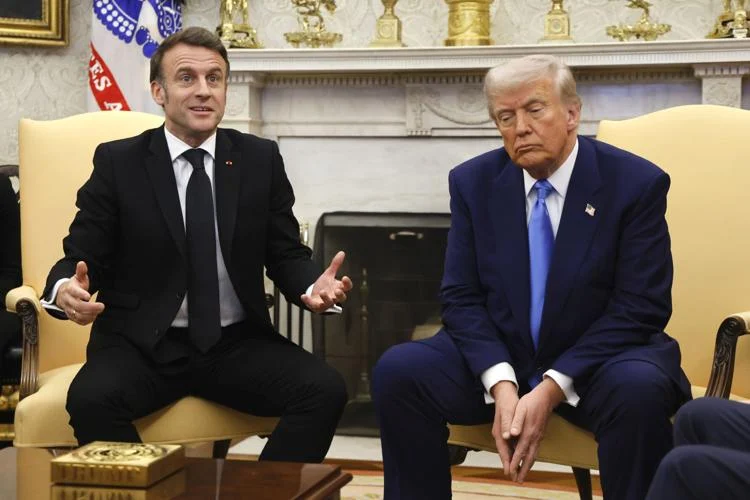British and French officials have abandoned plans for European peacekeeping forces in Ukraine and now focus on sustaining long-term defense against Russia without American support, The Telegraph reported on 31 May.
Since Trump took office and shifted US foreign policy toward seeking a diplomatic resolution to the Ukraine war, Europe began taking greater responsibility for its own security. Over four months of attempts to negotiate with Putin, Trump said in early May that he would decide within “about two weeks” whether Putin was serious about a ceasefire, following Putin’s promise to provide a Russian memorandum within a week—a promise that remains unfulfilled.
European officials met in The Hague to discuss the shift after growing concerns that President Donald Trump will abandon his mediator role. Trump has failed to bring Vladimir Putin to negotiations despite his earlier promises.
“Let’s get real and admit the US will never be on board,” a Western official told The Telegraph about the meeting’s atmosphere.
A European diplomat explained the new strategy: “It was mostly about how to sustain the necessary support to Ukraine when we assume that the US would only continue providing some specific assets, such as intelligence.”
The meeting marked a stark change from the original “coalition of the willing” proposal. British Prime Minister Keir Starmer and French President Emmanuel Macron had previously pushed for European soldiers to enforce any peace deal.
More than 30 nations indicated support for the original plan. Only a handful publicly offered to deploy troops on Ukrainian soil.
European nations also agreed to invite Ukrainian President Volodymyr Zelenskyy to next month’s NATO summit in The Hague. His attendance was previously uncertain due to Trump’s opposition to Ukrainian NATO membership.
General Keith Kellogg, Trump’s Ukraine envoy, confirmed the US position on 30 May: “We’ve said that, to us, Ukraine coming into NATO is not on the table. And we’re not the only country that says that. You know, I can probably give you four countries in NATO, and it takes 32 of the 32 to allow you to come into NATO.”
The coalition will continue publicly supporting Trump’s peace efforts at Ukrainian officials’ request. Ukraine fears that opposition could lead Trump to end weapons shipments and intelligence sharing.
Washington has not approved new weapons deliveries since Trump took office. The US continues shipping hardware approved under Joe Biden’s administration and allows sales of domestically-produced equipment like F-16 spare parts.
Peace talks between Russia and Ukraine will resume on 2 June in Istanbul. Britain’s national security adviser is expected to attend alongside counterparts from Germany and France.
“We’ll have what we call the E3. That is the national security advisers from Germany, France, and Great Britain,” Kellogg told ABC News. “When we were in London, they kind of helped us mould a term sheet for Ukraine.”
Moscow and Kyiv held their first direct negotiations in over three years in Istanbul earlier this month. The Kremlin said on 30 May it would only discuss ceasefire conditions after Ukraine demanded to see a peace memorandum before negotiations.
Ukrainian Foreign Minister Andrii Sybiha explained Kyiv’s position: “In order for the next planned meeting to be substantive and meaningful, it is important to receive a document in advance so that the delegation that will attend has the authority to discuss the relevant positions.”
Russian Foreign Minister Sergei Lavrov announced the second round of talks after Trump criticized Putin, calling him “crazy” and accusing him of “playing with fire” while appearing to give a two-week deadline for a deal.
Britain and Germany will host a meeting of the Ukraine Defence Contact Group next week. The group coordinates military aid among 50 nations supporting Ukraine.




